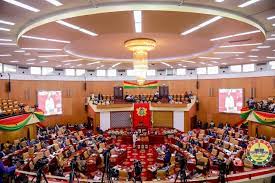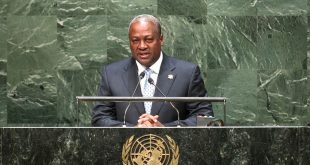Parliament has approved a $750 million loan arrangement with the Afrexim Bank for funding infrastructure projects and budget support, despite a last-minute attempt to stop the move on quorum-related grounds.
The loan is a component of a $1 billion facility that the government is using to bolster its reserves and fund a number of infrastructure projects across the nation.
The Minority, which had previously rejected the loan agreement, changed its position during the debate in order to prevent what they fear will be the economic collapse of the nation if the loan is not granted.
Kwaku Kwarteng, the chairman of the finance committee, made the motion while Dr. Cassiel Ato-Forson, the ranking member of the committee, stated during his contribution that the government has not established the requisite financial reserves to repay the loan.
The 2022 Budget Statement and Economic Policy of Government both said that the government intended to use a syndicated term loan facility to borrow up to the equivalent of $750 million in Ghanaian cedis to support the implementation of the 2022 budget.
Following the government’s declaration that no Eurobonds will be issued in 2022 under the International Capital Market Programme (ICMP) until the market circumstances improved, the loan syndication strategy was adopted.
This strategy was required because, at the time the 2022 Budget was approved, the spread of the new COVID-19 variants had resulted in the re-imposition of restrictions across the board, as well as instances of energy price increases and supply side disruptions, thereby restricting access to the global capital market.
The administration plans to secure the credit facility to finance important signature projects under the 2022 Budget, according to the Finance Committee of Parliament.
Because the government decided against using the capital market to raise money until the market circumstances improved, this arrangement was necessary.
Additionally, the Bank of Ghana’s reserves must be bolstered with additional foreign currency due to the growing exodus of non-resident investors from the country’s domestic bond market, which has repercussions for the amount of reserves.
Source: Ghanatodayonline.com
 Ghanatodayonline.com News, Politics, Health, Education & More
Ghanatodayonline.com News, Politics, Health, Education & More




